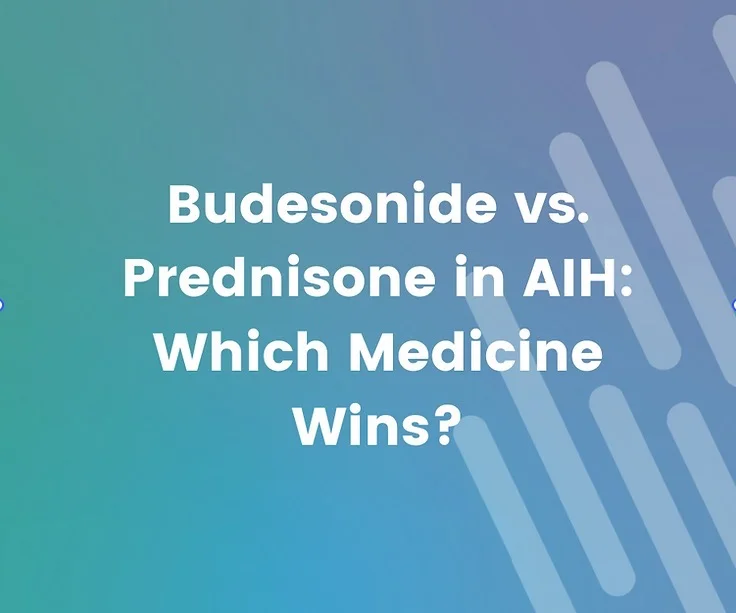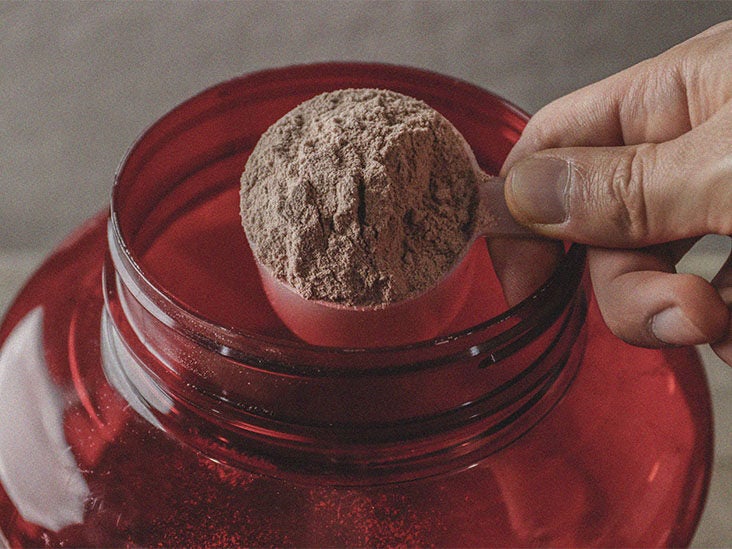alternatives for prednisone

Introduction to Prednisone and Its Uses
Prednisone is a commonly prescribed medication that belongs to the class of corticosteroids. It is used to treat a variety of medical conditions, including inflammation, allergies, autoimmune disorders, and certain types of cancer. However, prednisone may not be suitable for everyone due to its potential side effects and contraindications. In such cases, it is important to explore alternative options that can provide similar therapeutic benefits without the associated risks.
Overview of Prednisone and Its Usage in Medical Treatment
Prednisone is a synthetic corticosteroid that mimics the effects of cortisol, a hormone naturally produced by the adrenal glands. It works by suppressing the immune system and reducing inflammation in the body. This makes it effective in managing conditions such as asthma, rheumatoid arthritis, lupus, and inflammatory bowel disease.
While prednisone can be highly effective in treating these conditions, its long-term use can lead to various side effects, including weight gain, mood swings, increased blood pressure, and weakened immune system. Additionally, some individuals may have contraindications or sensitivities to prednisone that make it unsuitable for their treatment.
Fortunately, there are alternatives available that can provide similar therapeutic benefits without the same level of side effects or contraindications. These alternatives may include other corticosteroids with different properties or non-steroidal anti-inflammatory drugs (NSAIDs) that target inflammation specifically.
It is important to consult with a healthcare professional to determine the most appropriate alternative for your specific condition and medical history. They can evaluate your needs and recommend the best course of treatment that balances effectiveness with minimizing potential risks.

Side Effects and Risks of Prednisone
Common Side Effects and Risks Associated with Prednisone
Prednisone is a commonly prescribed medication used to treat a variety of conditions, including inflammation, allergies, and autoimmune disorders. While it can be effective in managing these conditions, it is important to be aware of the potential side effects and risks associated with its use.
Some common side effects of prednisone include:
- Weight gain: Prednisone can cause fluid retention and increased appetite, leading to weight gain.
- Mood changes: Some individuals may experience mood swings, irritability, or even depression while taking prednisone.
- Increased risk of infections: Prednisone can suppress the immune system, making individuals more susceptible to infections.
- Osteoporosis: Long-term use of prednisone can lead to bone loss and an increased risk of fractures.
- High blood pressure: Prednisone can cause an increase in blood pressure, which may require additional medication to manage.
It is important to note that these are just some of the common side effects associated with prednisone. Each individual may react differently to the medication, and some may experience additional or different side effects.
If you are concerned about the potential side effects or risks associated with prednisone, it is important to discuss them with your healthcare provider. They can provide guidance on managing these side effects or explore alternative treatment options that may be more suitable for your specific condition.
Remember, never stop taking prednisone or any other medication without consulting your healthcare provider first. They will be able to provide the best advice based on your individual needs and circumstances.

Natural Alternatives for Prednisone
Natural Methods to Replace or Supplement Prednisone Treatment
When it comes to managing certain health conditions, prednisone is a commonly prescribed medication. However, some individuals may seek natural alternatives to prednisone due to concerns about potential side effects or a desire for a more holistic approach. While it’s important to consult with a healthcare professional before making any changes to your treatment plan, there are several natural methods that can be considered as alternatives or supplements to prednisone.
- Dietary Changes: Adopting an anti-inflammatory diet rich in fruits, vegetables, whole grains, and healthy fats can help reduce inflammation in the body. Avoiding processed foods, sugar, and excessive alcohol consumption can also support overall health.
- Herbal Remedies: Certain herbs have anti-inflammatory properties that may help manage symptoms associated with conditions commonly treated with prednisone. Examples include turmeric, ginger, boswellia, and devil’s claw. However, it’s important to discuss herbal remedies with a healthcare professional as they may interact with other medications.
- Lifestyle Modifications: Regular exercise, stress management techniques such as yoga or meditation, and getting enough sleep can all contribute to overall well-being and potentially reduce the need for prednisone.
- Supplements: Some individuals may find relief from symptoms by taking certain supplements such as omega-3 fatty acids, vitamin D, or probiotics. However, it’s crucial to consult with a healthcare professional before starting any new supplements.
Remember, natural alternatives for prednisone may not be suitable for everyone or every condition. It’s essential to work closely with your healthcare provider to determine the best treatment plan for your specific needs.

Turmeric as an Alternative for Prednisone
Benefits and Usage of Turmeric as a Natural Substitute for Prednisone
Turmeric, a vibrant yellow spice commonly used in Indian cuisine, has gained popularity for its potential health benefits. It contains a compound called curcumin, which has been studied for its anti-inflammatory properties. As a result, turmeric is increasingly being considered as a natural alternative to prednisone, a corticosteroid medication commonly prescribed to reduce inflammation in various conditions.
One of the key benefits of turmeric is its ability to reduce inflammation without the potential side effects associated with long-term prednisone use. Prednisone can cause side effects such as weight gain, mood swings, and weakened immune system. In contrast, turmeric is generally well-tolerated and has a lower risk of adverse effects.
Turmeric can be used in various forms, including fresh root, powdered spice, or as a supplement. It can be incorporated into meals, such as curries or smoothies, or taken as a supplement in capsule form. However, it is important to note that the curcumin content in turmeric is relatively low, and absorption can be enhanced by consuming it with black pepper or fat.
While turmeric shows promise as an alternative to prednisone, it is essential to consult with a healthcare professional before making any changes to your treatment plan. They can provide guidance on the appropriate dosage and ensure that turmeric does not interact with any other medications you may be taking.
In conclusion, turmeric offers a natural alternative to prednisone for reducing inflammation. Its anti-inflammatory properties and lower risk of side effects make it an attractive option for those seeking alternative treatments. However, it is crucial to seek medical advice before incorporating turmeric into your regimen to ensure its safe and effective use.
CBD Oil as an Alternative for Prednisone
Exploring the Potential of CBD Oil in Replacing Prednisone
Prednisone is a commonly prescribed medication for various conditions such as inflammation, allergies, and autoimmune disorders. However, it is not without its side effects, which can range from mild to severe. As a result, many individuals are seeking alternatives to prednisone that offer similar benefits without the unwanted side effects. One potential alternative gaining attention is CBD oil.
CBD oil, derived from the cannabis plant, has been found to have anti-inflammatory properties and may help alleviate symptoms associated with conditions that typically require prednisone. It interacts with the body’s endocannabinoid system, which plays a role in regulating inflammation and immune responses.
Research on the use of CBD oil as an alternative to prednisone is still in its early stages. However, preliminary studies have shown promising results. For example, a study published in the European Journal of Pain found that CBD oil reduced pain and inflammation in rats with arthritis.
It is important to note that CBD oil should not be used as a replacement for prednisone without consulting a healthcare professional. While it may offer potential benefits, each individual’s condition is unique, and medical guidance is essential for determining the most appropriate treatment plan.
In conclusion, CBD oil shows promise as an alternative to prednisone for certain conditions. However, further research is needed to fully understand its efficacy and safety. If you are considering CBD oil as a potential alternative, it is crucial to consult with a healthcare professional to ensure it is suitable for your specific needs.

Vitamin D as an Alternative for Prednisone
The Role of Vitamin D in Managing Inflammation and Its Efficacy Compared to Prednisone
Prednisone is a commonly prescribed medication for managing inflammation and autoimmune conditions. However, due to its potential side effects and long-term use limitations, individuals may seek alternatives. One such alternative is Vitamin D, which has shown promise in managing inflammation and reducing the need for prednisone.
Vitamin D plays a crucial role in regulating the immune system and reducing inflammation. Research has shown that Vitamin D deficiency is associated with increased inflammation markers and autoimmune diseases. By maintaining optimal Vitamin D levels, individuals may experience a reduction in inflammation and potentially decrease their reliance on prednisone.
Studies have compared the efficacy of Vitamin D to prednisone in managing various conditions, including asthma, rheumatoid arthritis, and multiple sclerosis. While more research is needed, preliminary findings suggest that Vitamin D supplementation can be as effective as prednisone in reducing inflammation and improving symptoms.
It is important to note that Vitamin D should be used under the guidance of a healthcare professional. They can assess your individual needs, conduct appropriate testing, and determine the proper dosage for your specific condition.
In conclusion, Vitamin D shows promise as an alternative for prednisone in managing inflammation and autoimmune conditions. By maintaining optimal levels of Vitamin D, individuals may experience a reduction in inflammation and potentially reduce their reliance on prednisone. However, it is essential to consult with a healthcare professional before making any changes to your treatment plan.
Magnesium as an Alternative for Prednisone
The Benefits and Usage of Magnesium as a Prednisone Alternative
Magnesium is a mineral that has gained attention as a potential alternative to prednisone, a commonly prescribed corticosteroid medication. While prednisone can be effective in treating various conditions, it is also associated with several side effects. Therefore, individuals who are seeking a natural and potentially safer option may consider incorporating magnesium into their treatment plan.
One of the key benefits of using magnesium as an alternative to prednisone is its anti-inflammatory properties. Research has shown that magnesium can help reduce inflammation in the body, which is beneficial for conditions such as asthma, arthritis, and inflammatory bowel disease. Additionally, magnesium has muscle-relaxing properties that can help alleviate muscle spasms and cramps.
Magnesium can be taken orally in the form of supplements or obtained through dietary sources such as leafy green vegetables, nuts, seeds, and whole grains. It is important to note that before starting any new treatment or supplement, individuals should consult with their healthcare provider to ensure it is safe and appropriate for their specific condition.
While magnesium can be a promising alternative to prednisone for some individuals, it is essential to recognize that it may not be suitable or effective for everyone. Each person’s health needs are unique, and what works for one individual may not work for another. Therefore, it is crucial to have an open and honest conversation with a healthcare professional to determine the best course of action.
In conclusion, magnesium offers potential benefits as an alternative to prednisone due to its anti-inflammatory and muscle-relaxing properties. However, it is important to consult with a healthcare provider before incorporating magnesium into a treatment plan to ensure its safety and effectiveness for individual needs.

Conclusion
In conclusion, while prednisone is a commonly prescribed medication for various conditions, it is important to consider the potential side effects and explore alternative options. Natural alternatives can offer effective relief with fewer adverse effects. However, it is crucial to consult with a healthcare professional before making any changes to your treatment plan.
Comparing the Effectiveness and Side Effects of Prednisone and Natural Alternatives
Prednisone is a powerful corticosteroid that can effectively reduce inflammation and suppress the immune system. However, it also comes with a range of potential side effects, including weight gain, mood swings, increased risk of infections, and bone loss.
Natural alternatives to prednisone can provide relief for certain conditions without the same level of side effects. These alternatives include:
- Herbal remedies: Certain herbs like turmeric, ginger, and boswellia have anti-inflammatory properties and can help alleviate symptoms associated with conditions such as arthritis.
- Dietary changes: A healthy diet rich in fruits, vegetables, whole grains, and lean proteins can support overall health and reduce inflammation in the body.
- Lifestyle modifications: Regular exercise, stress management techniques like yoga or meditation, and adequate sleep can all contribute to reducing inflammation and improving overall well-being.
- Supplements: Some supplements like omega-3 fatty acids, vitamin D, and probiotics have shown promise in reducing inflammation and supporting immune function.
It is important to note that natural alternatives may not be suitable for all individuals or conditions. It is always recommended to consult with a healthcare professional before starting any new treatment or discontinuing prescribed medications.
By exploring natural alternatives and working closely with a healthcare provider, individuals can find effective solutions that minimize the potential risks associated with prednisone use.

Frequently Asked Questions
Common Queries and Concerns Regarding Prednisone Alternatives
When it comes to managing certain health conditions, prednisone is a commonly prescribed medication. However, due to its potential side effects and long-term use, many individuals are seeking alternatives. Here are some frequently asked questions and concerns regarding prednisone alternatives:
- Are there natural alternatives to prednisone? Yes, there are natural alternatives that can help manage inflammation and other symptoms. Some options include turmeric, ginger, omega-3 fatty acids, and boswellia.
- What are the potential side effects of prednisone? Prednisone can cause a range of side effects, including weight gain, mood swings, increased blood pressure, and weakened immune system. Long-term use can also lead to more serious complications such as osteoporosis and adrenal insufficiency.
- Can I switch from prednisone to another medication? It is important to consult with your healthcare provider before making any changes to your medication regimen. They can assess your specific condition and recommend suitable alternatives based on your individual needs.
- Are there any lifestyle changes that can help reduce the need for prednisone? Making certain lifestyle changes can help manage symptoms and potentially reduce reliance on prednisone. These may include adopting a healthy diet, regular exercise, stress management techniques, and getting enough rest.
- What are some commonly prescribed alternatives to prednisone? Depending on the condition being treated, healthcare providers may prescribe alternatives such as corticosteroid inhalers for asthma, nonsteroidal anti-inflammatory drugs (NSAIDs) for arthritis, or immunosuppressants for autoimmune disorders.
It is crucial to consult with a healthcare professional before considering any alternatives to prednisone. They can provide personalized advice and guidance based on your specific health needs.








